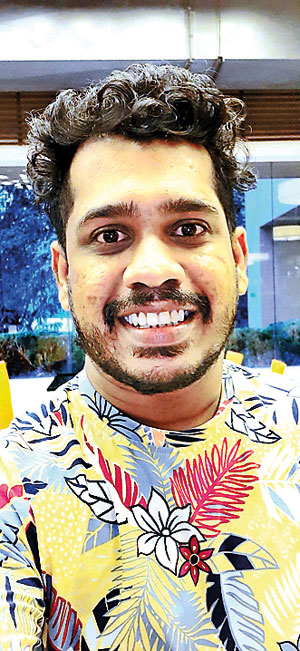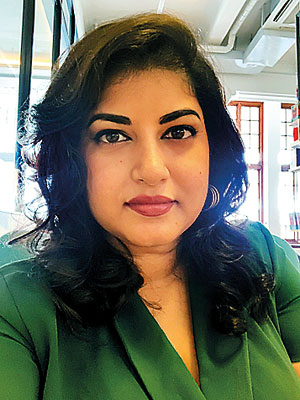News
Religious ideologues poison student sexual health info rights and debate
Overwhelming support for the introduction of sex education in schools is being stymied by religious and other groups who fear this will lead to unbridled sexual activity.
Education authorities and most teachers support separate sex education, the Sunday Times found. But this has been consistently blocked.
“It is being opposed because of ‘culture’ and because they fear that it might lead to children experimenting with such things,” said an Education Ministry source, who did not wish to be named.

Thushara Manoj
The ‘Hathe Ape Potha’, a sex education guide published by the health and education ministries was recalled owing to protests by religious leaders. But the ministries are now creating another book for Grade 10 upwards which will be sent for evaluation to a committee before a decision is taken on whether it will be published.
Family Health Bureau data shows a downward trend in registered teenage pregnancies. It was 4.6% in 2017; in 2018 and 2019 it was 4.4%. In 2020, the incidence dropped to 4.1%. But unregistered teenage pregnancies are believed to be much higher.
“Most of these take place through close family members or relatives,” said Thushara Manoj, a prominent comprehensive sexuality education activist and senior manager of the Family Planning Association of Sri Lanka. Comprehensive sexuality education embraces a wide range of cognitive, physical, emotional and social aspects of sexuality.
Children must understand ‘bad touch’ and ‘good touch’ to be aware of any abuse they may be undergoing. For that, comprehensive sexuality education was vital, Mr Manoj said. The stigma attached sex education paves the way for abusers to silence their victims.
“Abusers just say, ‘If you tell anyone about what I did, no one will want you or believe you’,” he explained. “And the rape of the male child is barely discussed.”
Misleading information in school textbooks, too, leads to stigma. For instance, there was public outrage last year over the Grade 11 health book which victim-blamed rape victims.
“We had a retreat in school when we were 18 years old and the priest told us that women get raped because of what we wear,” said a 21-year-old international relations student who attended a private girls’ convent in Colombo.
In school, sex education is skipped over or met with giggles and laughter. Only brief, scientific descriptions that focus largely on human reproduction, reproductive organs, menstruation and sexually transmitted diseases are taught.
“Talking about such topics can be tricky,” Shanuki De Alwis, senior technical officer of advocacy and accountability at the International Planned Parenthood Federation acknowledged. “But the more the world gets connected, the more chances there are of young people getting information from unreliable sources.”
By contrast, several adults in their ’30s and ’40s told the Sunday Times they had no sex education in schools at all, or that the lessons were not by teachers. And the adults they associated with had also evaded the subject.

Shanuki De Alwis
The lesbian, gay, bisexual, transgender, queer (LGBTQ) community is also marginalised through the present education system. “The only representation the LGBTQ community has got is that AIDS happens through gay intercourse,” said Vasi Samudra Devi, a 26-year-old trans woman.
This lack of representation and awareness contributes to physical and sexual violence faced by LGBTQ persons. There is an enduring myth attached to the LGBTQ community that it’s a mental disorder, despite these claims being debunked by the World Health Organisation and the Sri Lanka College of Psychiatrists.
There are also no sex education resources for less-abled people. The ‘We Hear You’ project of the Youth Advocacy Network and the British Council is a sexual and reproductive health and rights programme for people with hearing disabilities. It shows that language is a significant barrier in the learning process, said Nayanathara Jayathilaka, 25, SRHR trainer.
From her work with 10 and 16 to 28-year-olds (she is presently in Anuradhapura), she said that, “Instead of searching for terms like ‘virginity’ they search for terms like ‘pettiya’, ‘sudu redda’ and ‘le binduwa’.”
But by age 16-18 years, a majority has searched for the word ‘sex’. This sends them to porn sites and erotica which contain misleading depictions of SRHR. (The respondents of the Instagram poll also said they relied on pornography to access information regarding sex).
Comprehensive sexuality education has now evolved to include topics like revenge porn and cyber harassment. Data analysis of social media trends for 2021 by the Hashtag Generation shows 306 incidents of non-consensual image sharing, including non-intimate images shared without consent with the intention to harm.
There have also been 173 cases of cyber sexual exploitation; two cases of doxxing (searching for and publishing private or identifying information about a particular individual on the internet, typically with malicious intent); and 34 cases of cyber grooming.
As a union, teachers support comprehensive sexuality education. “There are a large number of children who experience child abuse. That’s why it is imperative that we teach comprehensive sexuality education in schools,” said Joseph Stalin, secretary of the Ceylon Teachers’ Union.
National Child Protection Authority data shows 11,187 cases of child abuse in 2021, Mr Stalin said. The previous year, there were 8,165 cases. And these are only the reported cases.
Some teachers were uncomfortable but their mindsets needed to be changed through training and open conversation, Stalin maintained.
The National institute of Education said training was done to increase awareness among teachers whenever syllabi are updated.
The best way to say that you found the home of your dreams is by finding it on Hitad.lk. We have listings for apartments for sale or rent in Sri Lanka, no matter what locale you're looking for! Whether you live in Colombo, Galle, Kandy, Matara, Jaffna and more - we've got them all!

